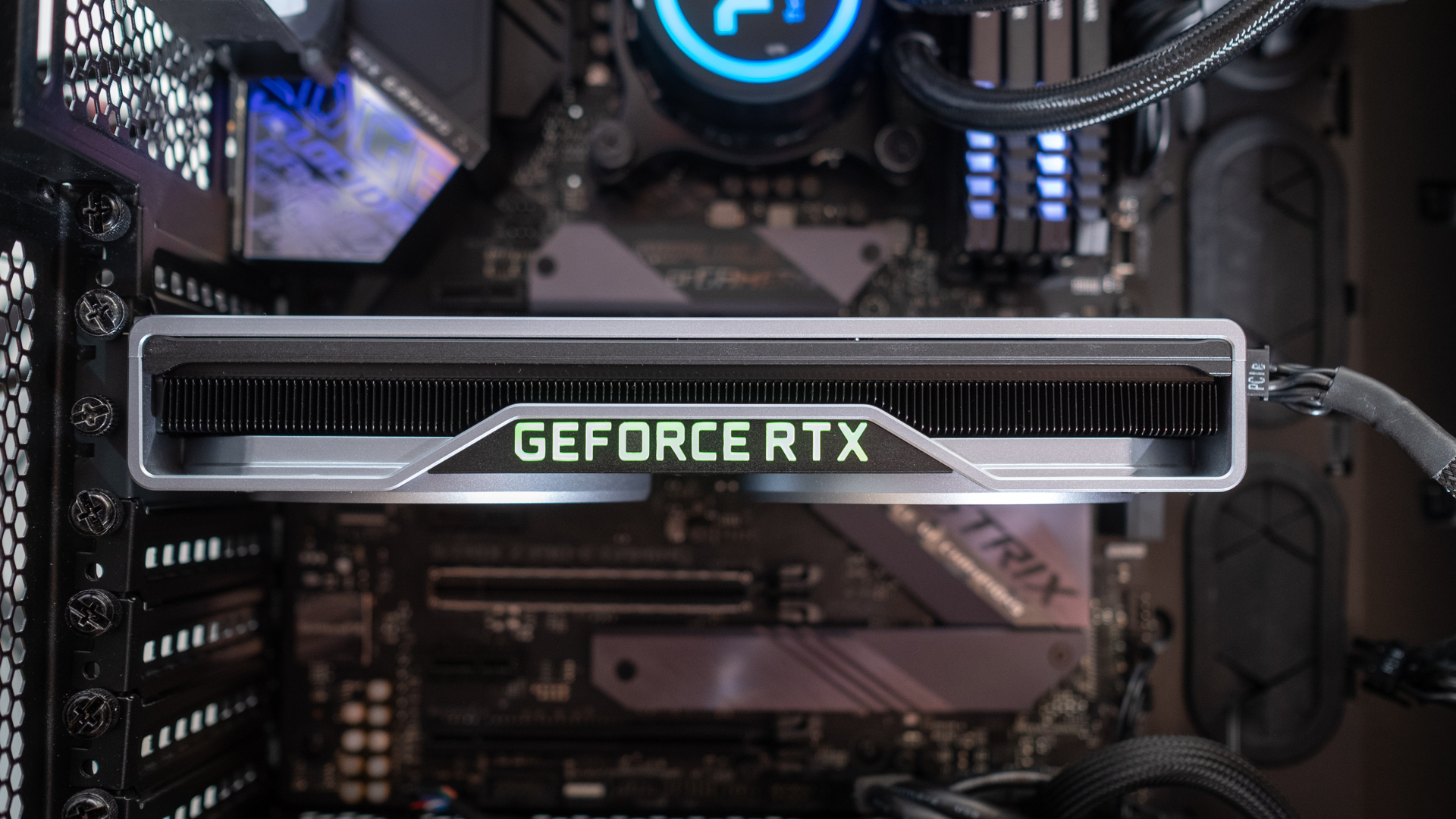Good news for Nvidia as gamers embrace RTX graphics cards according to Steam hardware survey
Nvidia GeForce RTX 2060 is going up in the gaming world, and fast

Nvidia’s GeForce RTX graphics cards appear to be benefiting from some serious fresh momentum, at least going by the results of the latest Steam hardware survey.
Valve’s survey shows that the top three graphics cards which made the most upward movement in terms of gaining market share for March 2020 were RTX models, led by the GeForce RTX 2060.
- Halo Reach hits 140 fps at 4K with a GeForce RTX 2060 Super
- Check out the best processors
- These are the best graphics cards of 2020
As you’re probably aware, that’s the most budget-friendly RTX graphics card, aimed at those who want dedicated ray tracing cores with a minimum of damage to their wallet. And in March, RTX 2060 adoption moved up to 2.71% according to Steam’s figures, representing a healthy increase of 0.53% on the previous month.
The second-biggest gainer was the RTX 2070 which moved up 0.33% to reach a 2.01% share of the GPU market, and that was followed by the newer RTX 2070 Super, the pepped-up version of the graphics card which increased adoption by 0.28% to reach 1.21%.
While those adoption figures might sound relatively small, we have to bear in mind that the GPU market is quite fragmented across a large number of different models, and in fact the RTX 2060 hitting 2.71% means it’s now the fifth most popular graphics card overall among the Steam gamers surveyed. It’s also more popular than any of the cheaper GTX Turing models (without ray tracing hardware acceleration) which are led by the GeForce GTX 1660 Ti in seventh place on 2.48%.
The most popular cards remain Nvidia’s previous-generation 10-series offerings, holding the top four spots, and being led by the GeForce GTX 1060 which is still used by 12.67% of Steam gamers (it was down a fraction – dropping 0.01% – in March). Nvidia’s GTX 1050 Ti is in second place on 8.81% (down a quarter of a percentage point), followed by the GTX 1050 on 5.42%, and then the GTX 1070 on 4.23%. The RTX 2060 is next in line.
No great surprise
Is this RTX success to be expected, though? Nvidia is clearly all-in on ray tracing, with next-gen RTX 3000 cards expected to make big advancements on this front, and they are expected to launch later in 2020, with price adjustments of existing RTX cards to doubtless follow.
Sign up for breaking news, reviews, opinion, top tech deals, and more.
Hopefully more affordable and better ray tracing should help push adoption even further, and of course there’s the small matter of the next-gen games consoles – the PS5 and Xbox Series X – also supporting ray-traced graphics. And of course AMD’s getting on board with its next Big Navi graphics cards powered by RDNA 2 also coming with hardware accelerated ray tracing.
So in short, the industry is clearly headed this way, so Nvidia’s current RTX cards gaining momentum really shouldn’t be much of a surprise. Particularly as the RTX 2060 has already become more affordable…
As to AMD’s current performance in the Steam survey for March, the best placed Radeon graphics card doesn’t make the cut for the top 10. AMD’s Radeon RX 580 is in eleventh place with a 1.95% share, and you have to drop to nineteenth place to find the next AMD card, the RX 570 on 1.13%.
Valve’s gaming platform certainly paints a picture of Nvidia domination, although again that’s no surprise, as this has been echoed by figures we’ve been seeing from other sources including analyst firms for a good long time. For example, stats from Jon Peddie Research have recently shown Nvidia having a 73% market share when it comes to discrete GPUs (with AMD holding the remaining 27%, of course).
- Check out all the best computing components
Darren is a freelancer writing news and features for TechRadar (and occasionally T3) across a broad range of computing topics including CPUs, GPUs, various other hardware, VPNs, antivirus and more. He has written about tech for the best part of three decades, and writes books in his spare time (his debut novel - 'I Know What You Did Last Supper' - was published by Hachette UK in 2013).